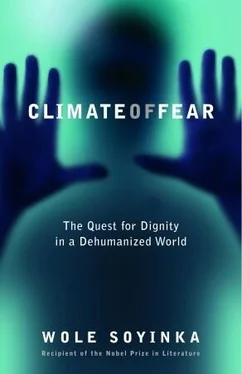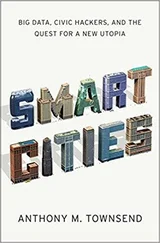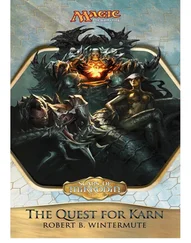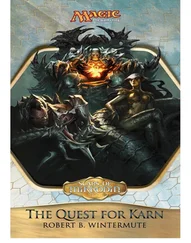Is it strictly out of a commitment to the moral law— Thou shalt not kill —that the extreme antiabortion crusader in the United States stalks and kills abortion doctors, patients, and innocent passersby, sometimes operating from within a network of protective cells? Or is there also an element of the thrill of membership in a quasi-state, exercising a form of power that transcends all mainstream social accords? We shall turn more fully to the theme of the Chosen in the fifth of these lectures.
For now, let me assure you that if you wish to observe the face of power at its most mundane, you do not have far to seek.You do not need to pay to see Marlon Brando in his role as the Godfather at the head of a Mafia combine. That face is omnipresent — from the clerical assistant on whom the emergence of a critical file depends to anonymous members of an unacknowledged terrorist organization in the United States known as the IRS — the Internal Revenue Service. Simply be on the receiving end of a letter of demand from that body to construct on your retina the driven personality of the writer!
Actually, that ogre has long since been displaced in my personal encounters — at least temporarily — by one of the new creatures of the heightened state of alert that now prevails in countries like the United States. These days, after you have checked in and gone through all the security checks, you may find yourself at the departure gate being subjected to a final, detailed check of your person and your baggage. That selection is mostly a random one, carried out by the computer. However, in other airports or, more accurately, with certain airlines, it is an airline security official who decides your fate, either immediately before or after you have passed through the baggage-screening section. That individual, who presumably is trained not only in human but in document psychology, looks you up and down like some strange insect species, takes another look at your passport, weighs it in one hand or in both, and takes another look at you. She does not ask you any questions; all decisions are based on that dual inspection — of you and your documents. She pauses — there is a long queue behind you but she pauses a long while — to let you know that your fate is in her hands. Then, with the most contemptuous toss of her head, she indicates that you may go through, or… step aside and join other lesser beings who are huddled, waiting to be stripped to their barest essentials. Don’t take my word for it, go and see these individuals at work. There are a hundred ways I can think of — most of them actually polite and humane— whereby you can let a voyager know that you are about to subject him to some inconvenience, but for a laudable cause. No, these individuals let you know, in advance, that what you are about to experience is indignity, and that they, and they alone, are the powers that force-feed you this diet of humiliation.
I regret to have to inform you — and political correctness can go take a jump — that the nastiest, most obviously power-possessed officials that I have encountered in this manner have all been women, mostly between the ages of twenty and thirty, and — black! Perhaps the perennial war of the sexes is a factor, tied to the additional complication of the history of racism in the United States; I leave it to sociologists to look into this experience for me and offer their own explanations. All I do here is testify from experience — and on oath!
Let me not fail, simply for reasons of a deep, subjective, murderous loathing, to pay tribute to the creature to whom the modern crown of furtive power rightly belongs: the domination freak whose warped genius creates those invisible, proliferating Frankensteins from his dingy computer den and sends them in virtual space to invade and destroy the work of individuals and institutions. These aberrants are without an ounce of hatred in their veins, with no wrong to avenge, no cause to promote, with no physical or territorial ambition, indeed with no motivation other than the lust for power over unknown millions, both the meek and the powerful, the affluent and the deprived, the professor and the school pupil alike. I refer, of course, to none other than the cybernerd, whose depredations we all must have felt at some time or other, or barely escaped. The most recent of these, like Mr. “I am God” the Maryland sniper, is not without a message for his captive world—“Have the guts to call the name of Jesus” is the subject line of the stalking horse on which his cannibal creation rides to wage his war of destruction on the unsuspecting.
It takes little imagination to picture this figure at his computer with, literally, the whole world at his fingertips, locked in a competitive lust with unknown others for the power to inflict the maximum injury on humanity. Usually youthful, European or Asian — so report the cybersleuths — and again, PC be damned, this individual is of course impelled by a genuine passion for discovery, but the space between that motion of a technological curiosity and the gesture that launches a virus on the world is the space that separates the explorer from the conqueror, the adventurer from the imperialist, the revolutionary from the dictator: it is the space of pure, unadulterated ecstasy of power.
Power, alas — even in its comic vein — is neither abstract nor metaphysical in its impact on society. The axis of tension between power and freedom continues to propel the very motions of personality development, social upheaval, and nation conflicts. We must stress yet again that the urge to dominate may be the product of existing realities. Where such realities are not addressed, the political space is left fallow, enabling the calculating hand to fan the winds of fear. Some of these actualities may expand to threaten the peace of the world. Are they new, or are they simply the accentuation of well-known anomalies in nation relations? I began my remarks by deliberately identifying one such contributory breeding ground, Algeria. In forthcoming lectures, we shall touch on others — such as the Middle East — look into causes and effects, and perhaps even venture into speculations over possible solutions. I intend to proceed on the premise — one that I think is easy to agree upon — that humanity would rather work to dispel a climate of fear than live within it, and I assume also that we are equally agreed that, at this moment of speaking, we are well and truly enveloped in it. For now, let me devote the remaining time to taking us on a few turns along the axial relationship between power and freedom.
Science-fiction literature, of which I used to be an avid fan — I still am, it’s just that I do not have as much time to indulge in it as I once had — is most instructive, as are films in the same genre. Take The Day of the Triffids, where plants attempt to take over human society, or those films of alien body-snatchers, that most subversively imaginative way of taking over the key elements in a community,
its government, progressively taking over the nation by assuming the physical shapes of a nation’s ruling cadre. (Can we swear, by the way, that George Bush and Osama are not aliens in human shape?)
We may ask the question: in such fictions, what is the most basic element that twangs a chord of trepidation in the human viscera? Where does the reader, or viewer, identify most viscerally with the characters in this literary or cinematic genre? What gives that piquant edge to one’s apprehension in much of science-fiction and horror literature? I suggest that it is very simply the notion of coming under the control of another being, of finding oneself dominated by an alien force, an alien bundle of values, sensibilities, tastes, agenda, beliefs, and direction — in short, being robbed of one’s social anchor. Apart from a fear of the loss of identity to those goblins from outer space — with heaven knows what nasty habits — one recognizable source of that repulsion is, very simply, the ancestral adversary of human freedom that we designate “power.” The goblin has taken over control of our existential volition.
Читать дальше












